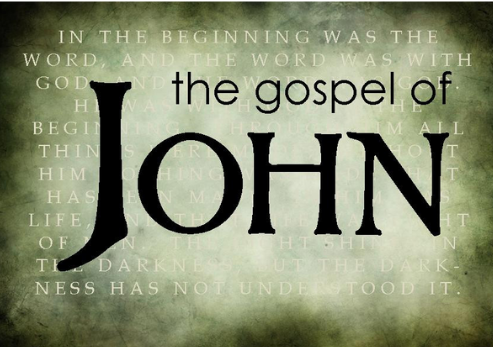| 12 After this He went down to Capernaum, He, His mother, His brothers, and His disciples; and they did not stay there many days. 13 Now the Passover of the Jews was at hand, and Jesus went up to Jerusalem. 14 And He found in the temple those who sold oxen and sheep and doves, and the moneychangers doing business. 15 When He had made a whip of cords, He drove them all out of the temple, with the sheep and the oxen, and poured out the changers' money and overturned the tables. 16 And He said to those who sold doves, "Take these things away! Do not make My Father's house a house of merchandise!" 17 Then His disciples remembered that it was written, "Zeal for Your house has eaten Me up." 18 So the Jews answered and said to Him, "What sign do You show to us, since You do these things?" 19 Jesus answered and said to them, "Destroy this temple, and in three days I will raise it up." 20 Then the Jews said, "It has taken forty-six years to build this temple, and will You raise it up in three days?" 21 But He was speaking of the temple of His body. 22 Therefore, when He had risen from the dead, His disciples remembered that He had said this to them; and they believed the Scripture and the word which Jesus had said. 23 Now when He was in Jerusalem at the Passover, during the feast, many believed in His name when they saw the signs which He did. 24 But Jesus did not commit Himself to them, because He knew all men, 25 and had no need that anyone should testify of man, for He knew what was in man. Questions to Consider:
Personal Note: Almost everyone who has ever lived has run into people who have proven to be untrustworthy. Jesus did not trust people because He knew their hearts. This was not guess work or "being judgmental," it was a true observation. It turned out that Jesus was right. The people of Jerusalem turned out to be pretty fickle. | This story represents Jesus' first trip to Jerusalem since embarking on His public ministry. It is the time of Passover, which meant that there would an overwhelming wave of animal sacrifices to be made in the temple. The time of Passover was an annual event that commemorated the original Passover, which occurred the night the death angel crossed over the homes of the Egyptians and took the first-born males. (Although I am a grandfather, I am still the oldest son in my family, which means I would have died at the hands of the death angel) The only homes who were spared from the work of the death angel, had sacrificed a one year old goat or lamb that was blemish free, and had marked their doors with the blood of the animal. The first question that comes to mind when people read this story is usually; "Why was Jesus so angry with the moneychangers?" It is widely speculated that the moneychangers were taking advantage (financial advantage) of the Jewish pilgrims that had come from around the world to the temple to sacrifice for Passover. Using religion to take advantage of pilgrims was anathema to Jesus. Although, the Apostle Paul makes it clear that those that labor in the work of the ministry; especially those that teach (1 Timothy 5:17, 18), the Gospel is not to be "used" as a vehicle to take financial advantage of other believers. Jesus overturned the tables of the moneychanger, scattered their money and chased them off of the temple grounds with a whip. The disciples recalled the prophetic word: "Zeal for Your house has eaten Me up." The temple was God's house, which means it was also Jesus' house. Everyone wanted to know what gave Jesus the "right" to take such an action. At this point, although they did not understand what Jesus was saying at the time, Jesus refers to the sign of the resurrection. "Destroy this temple (body), and in three days I will raise it up!" It was not until after Jesus' death and resurrection that the disciples of Jesus finally understood what He was talking about. v. 23 tells us that many of the people in Jerusalem started believing in Jesus, because they saw He performing "signs." Most likely Jesus was healing people. The signs that Jesus performed should have been all the proof needed that Jesus was special. He was either a great prophet, the Messiah or the devil Himself. v.24,25 tells us that Jesus did not trust people. He could see what is "in" man. |
|
0 Comments
|
RJ DugoneLead Teaching Elder: Archives
July 2020
Categories
All
|


 RSS Feed
RSS Feed
